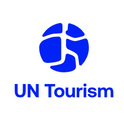Tourism can and should lead sustainable development: UNWTO Secretary-General opens ITB 2018

Berlin, Germany – The tourism sector's role and responsibility in contributing to sustainabledevelopment on a global scale was the central message delivered at the opening of the 2018 edition of the ITB Berlin travel trade show by Zurab Pololikashvili, Secretary-General of the World Tourism Organization (UNWTO). Speaking in the presence of German Chancellor Angela Merkel, tourism ministers from around the world and the leaders of the tourism sector, Mr. Pololikashvili stressed how tourism not only needs to consolidate current growth rates, but "to grow better".
In 2017, international tourist numbers grew a record 7% to reach 1.3 billion. UNWTO's message underlines the need to turn these figures into benefits for all people and all communities. "Leaving no one behind" is the benchmark for true sustainability, which must also decouple growth from resource use and place climate change response at the heart of the tourism sector's agenda.
"Tourism's sustained growth brings immense opportunities for economic welfare and development", said the UNWTO Secretary-General, while warning at the same time that it also brings in many challenges. "Adapting to the challenges of safety and security, constant market changes, digitalization and the limits of our natural resources should be priorities in our common action", he added.
Speaking at the opening were the Federal Chancellor Dr. Angela Merkel, the Governing Mayor of Berlin Michael Müller, the President of the Federal Association of the German Tourism Industry (BTW) Dr. Michael Frenzel, the Minister-President of Mecklenburg-Vorpommern Manuela Schwesig and Dr. Christian Göke, CEO of Messe Berlin.
"Tourism is an example of the opportunities of globalisation. Tourism brings people closer together and creates the foundation for growth" said Chancellor Angela Merkel. "We are committed to the Agenda 2030. We are committed to sustainable tourism." she added stressing the role of tourism in the sustainability agenda
The UNWTO Secretary-General stressed education and job creation, innovation and technology, safety and security; and sustainability and climate change as the priorities for the sector to consolidate its contribution to sustainable development and the 2030 Agenda, against the backdrop of its expansion in all world regions and the socio-economic impact this entails.
To address these issues, Mr. Pololikashvili concluded that "public/private cooperation as well as public/public coordination must be strengthened, in order to translate tourism growth into more investment, more jobs and better livelihoods".
About UN Tourism
The World Tourism Organization (UN Tourism) is the United Nations agency responsible for the promotion of responsible, sustainable and universally accessible tourism.
As the leading international organization in the field of tourism, UN Tourism promotes tourism as a driver of economic growth, inclusive development and environmental sustainability and offers leadership and support to the sector in advancing knowledge and tourism policies worldwide.
Our Priorities
Mainstreaming tourism in the global agenda: Advocating the value of tourism as a driver of socio-economic growth and development, its inclusion as a priority in national and international policies and the need to create a level playing field for the sector to develop and prosper.
Promoting sustainable tourism development: Supporting sustainable tourism policies and practices: policies which make optimal use of environmental resources, respect the socio-cultural authenticity of host communities and provide socio-economic benefits for all.
Fostering knowledge, education and capacity building: Supporting countries to assess and address their needs in education and training, as well as providing networks for knowledge creation and exchange.
Improving tourism competitiveness: Improving UN Tourism Members' competitiveness through knowledge creation and exchange, human resources development and the promotion of excellence in areas such as policy planning, statistics and market trends, sustainable tourism development, marketing and promotion, product development and risk and crisis management.
Advancing tourism's contribution to poverty reduction and development: Maximizing the contribution of tourism to poverty reduction and achieving the SDGs by making tourism work as a tool for development and promoting the inclusion of tourism in the development agenda.
Building partnerships: Engaging with the private sector, regional and local tourism organizations, academia and research institutions, civil society and the UN system to build a more sustainable, responsible and competitive tourism sector.
Our Structure
Members: An intergovernmental organization, UN Tourism has 160 Member States, 6 Associate Members, 2 Observers and over 500 Affiliate Members.
Organs: The General Assembly is the supreme organ of the Organization. The Executive Council take all measures, in consultation with the Secretary-General, for the implementation of the decisions and recommendations of the General Assembly and reports to the Assembly.
Secretariat: UN Tourism headquarters are based in Madrid, Spain. The Secretariat is led by the Secretary-General and organized into departments covering issues such as sustainability, education, tourism trends and marketing, sustainable development, statistics and the Tourism Satellite Account (TSA), destination management, ethics and risk and crisis management. The Technical Cooperation and Silk Road Department carries out development projects in over 100 countries worldwide, while the Regional Departments for Africa, the Americas, Asia and the Pacific, Europe and the Middle East serve as the link between UN Tourism and its 160 Member States. The Affiliate Members Department represents UN Tourism's 500 plus Affiliate members.
Rut Gómez Sobrino
Principal Media Officer
(+34) 91 567 81 60
UN Tourism
